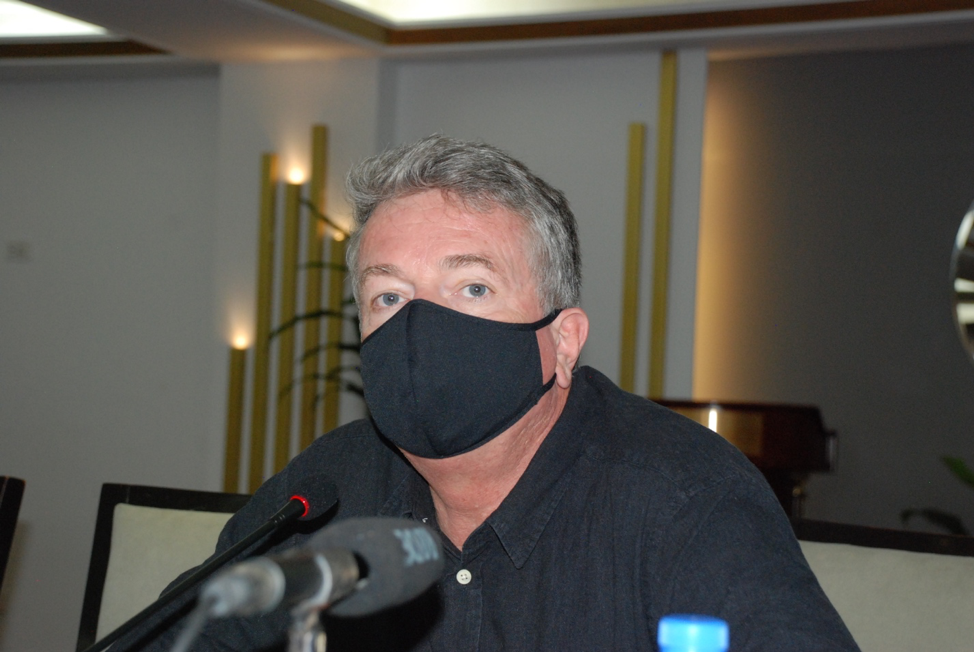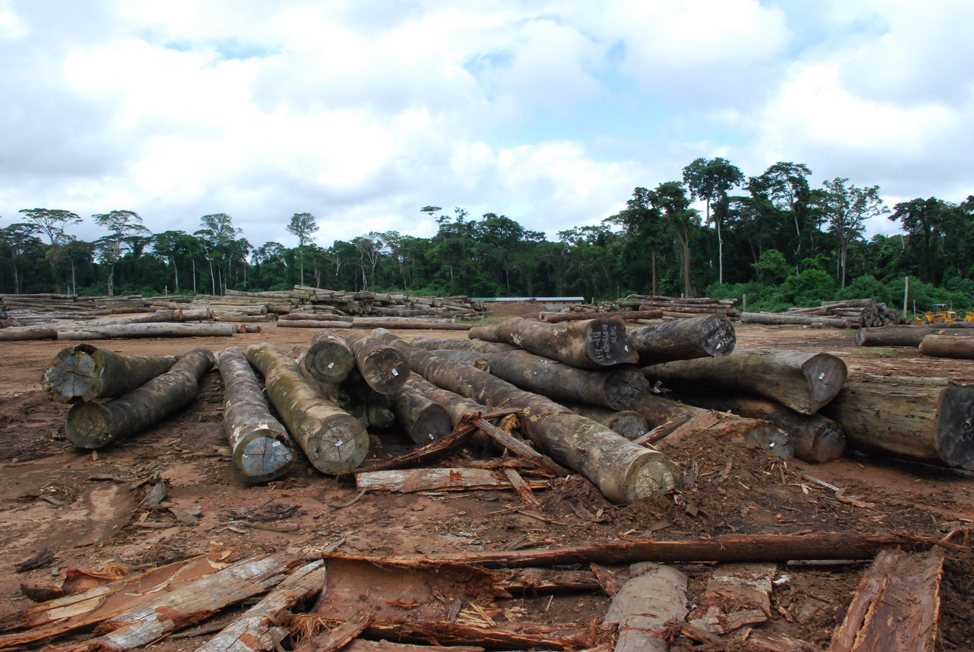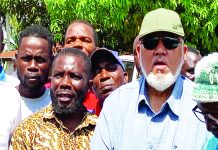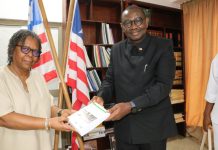Banner Image: Logs on a field in the Bluyeama Clan of Zorzor District, Lofa County. The DayLight/James Harding Giahyue
By James Harding Giahyue
MONROVIA – Laurent Delahousse, the European Ambassador accredited to Liberia, has urged the country to manage its forest sustainably or lose it forever.
Liberia has the biggest portion (42 percent) of the Upper Guinea Forests—one of the world’s largest rainforests—but has seen it gradually disappear in the last decade due to unsustainable logging, agriculture and mining.
“If things continue the way they are, I think in 10 or 15 years, there will be no forest left in Liberia, or at least not the forest that can bring the kind of revenue,” said Delahousse at the launch of a European Union direct grant (EUD) project to strengthen the capacity of civil society organizations in monitoring the implementation of the Voluntary Partnership Agreement (VPA). “This is an exceptional treasure that you inherited from your parents that you need to leave to your kids in an even better situation.”
Liberia and the EU—one of the biggest purchasers of Liberian timbers—signed the VPA in 2009 as part of a sweeping wave of reform across the West African country’s forestry sector after its civil war. The trade pact is to ensure that Liberia produces and exports legal timbers through strong forest governance and law enforcement.

But Liberia frequently violates the agreement, from a private use permit scandal that rocked the country in 2012 to a recent report that found the government owes community affected large-scale logging contracts US$5.5 million from land rental fees. Communities are a pillar of forestry reform in Liberia, assisting with governance management and monitoring. Two weeks ago, they protested for the fees, with the government on Thursday committing to pay around a tenth of the US$2.2 million they demanded.
Delahousse did not mention any of the crises in particular—which also violate national forestry laws—but offered an advice. “Proper system to manage forest for the benefit of all Liberians have already been put in place.” If these procedures are not implemented, the forest will still be cut but it will be for the interest of a few individual, and not for the common interest of Liberia.
“And the forest will not bring contribution to the development of Liberia… and the forest will disappear very quickly.”
The Managing Director of the Forestry Development Authority (FDA) Mike Doryen, who spoken earlier on and launched the 15-month project, had promised to pay communities their benefits.
“The problem here is when the money gets there (government’s coffers), it becomes a bit difficult at times to get it to the communities,” he said. “It is a compliance issue also.”
Doryen announced an impending moratorium on the harvesting of cotton tree (ceiba pentandra) as part of the cleanup measures. He said the FDA would be responding to the “indiscriminate” felling of the tree species whose wood (commonly called wide-wide) is used for construction. It also serves as habitat for bats and other species.
“We will take that decision to the board [of directors of the FDA] but by the first of September we will no longer allow the harvesting of cotton tree for any purpose,” Doryen said. He added that the FDA was working on the chainsaw union’s regulations to also curtail illegal logging.
How does the project work
Six national and international civil society groups are implementing the “Strengthening the Capacity of the Civil Society for the implementation of the VPA” EUD project worth US$555,555.
The Foundation for Community Initiatives (FCI), Sustainable Development Institute, Fern, National Union of Community Forestry Management Body, National Union of Community Development Committee and the Liberia Forest Media Watch will work in Lofa, Bassa, Margibi, Sinoe and River Cess.
They will work with the governance structures of forest communities in building the capacity of stakeholders in the forestry sector to implement the VPA and monitor and review the progress of forest governance in those counties.
“The activities contributing to this outcome will focus on the effective implementation of the newly established complaints mechanism, the inclusion of [community forest management agreement] in the VPA legality matrix and the monitoring of it so that infractions and irregularities can be addressed,” said Loretta Pope Kai, the executive director of FCI.
Delayed due to the coronavirus pandemic, the project has already taken off, Mrs. Kai told the launch. She said her group and other implementing partners had conducted needs assessments for targeted communities and held financial training for staff of the project.
She said the project would ensure communities affected by large-scale logging concessions get their benefits.





Facebook Comments